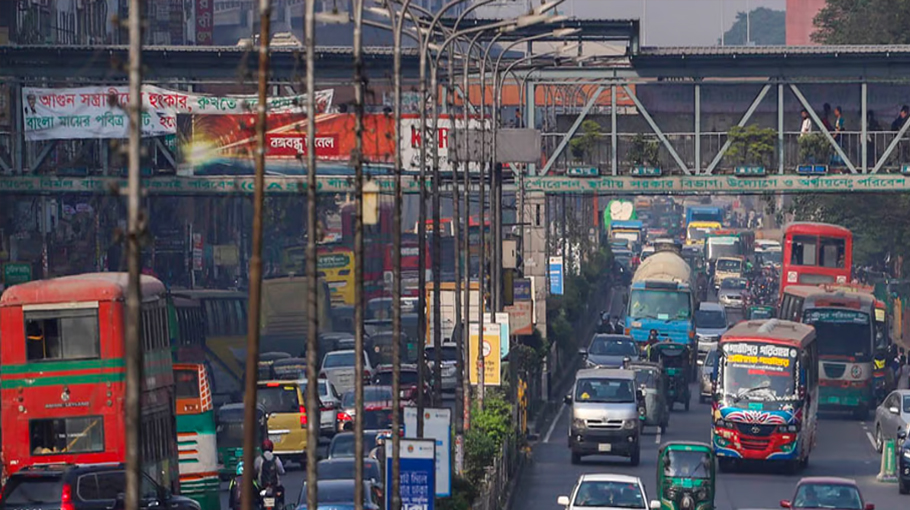BNP’s hartal, blockade
Transport sector in jeopardy

Since October 28, the BNP continued their political programmes like hartals and blockades throwing the transport sector into a deep crisis.
The owners are incurring loss around Tk239 crore per day while the workers are passing in inhuman lives due to serious financial hardship caused by the hartal and blockade as well.
Fearing arson attacks, the owners of passenger buses, coaches, trucks and covered vans either stopped plying their vehicles or reduced trips.
The buses, trucks and covered vans are the main targets for vandalism and arson attacks.
According to Bangladesh Transport Owners Association, the transport sector has also already incurred over TK 14000 crore between October 29 and December 6.
“We are very concerned about our transport business. We can’t run our buses, coaches, trucks, covered vans and other vehicles. The transport sector has already incurred loss over Tk 14000 crore. If such situation continues, it will be very difficult for us to survive,” Khandakar Enayetullah, General Secretary, Bangladesh Transport Owners Association told journalists.
He said hartals and blockades disproportionately impact on transportation like buses and trucks as they are prime targets for vandalism and arson attacks.
Talking to Osman Ali, General Secretary, Bangladesh Transport Workers Federation said around 70 lakh workers are involved in the transport sector.
“We have been reeling from a costs of living crisis, owing to global and domestic economic challenges. And the hartals and blockades are now battering us in many ways. We are failing to provide foods and other essentials to our families,” in an emotion chocked voice Osman Ali said.
At least 270 vehicles, mostly buses, were torched during the BNP-Jamaat grand rally, hartal, and blockades across the country from 28 October to 6 December.
According to the Mohakhali Inter-District Bus Owners' Association, over 700 vehicles leave Mohakhali daily.
However, due to the ongoing blockades only few number of busses are currently in operation.
Running buses only two days a week makes it financially challenging to cover workers' wages.
Consequently, business owners are grappling with managing expenses, including bus operation costs and bank loan instalments.
Economists fear it will have a huge adverse impact on the livelihoods of millions of people engaged in the transport sector.
Thousands of people involved in transport sector, have already become temporarily jobless due to ongoing blockade programme, putting a serious stress on the economy.
Besides, rickshaw-pullers, transport workers, day-labourers, street-vendors, hawkers, the employees of hotels, restaurants and different shops, markets, construction workers and other informal workers are the worst victims of the halt in economic activity as they have lost their means to earn bread and butter.
“Under the circumstances, social safety net must be widened further with adequate allocation while OMS activities in cities should be strengthened to mitigate the sufferings of the unemployed people,” Mohammad Enamul a driver of an inter-district bus told Bangladesh Post.
Talking to Jahangir Alam, a bus helper of a passenger bus said the government should make proper action plans so that the affected transport workers sector can survive.
“We along with our families are struggling to survive as our main sources of income have disappeared following blockade. We think the government should provide food to the workers as part of their ongoing aid programme across the city,” he said.




